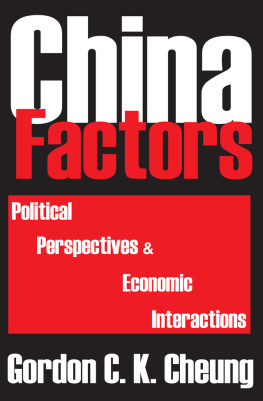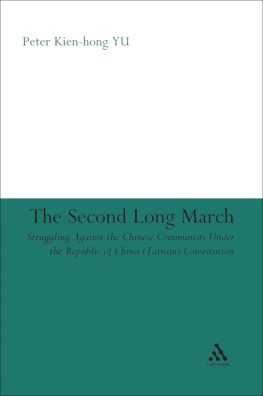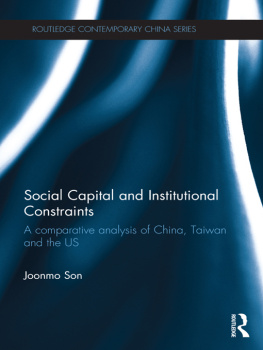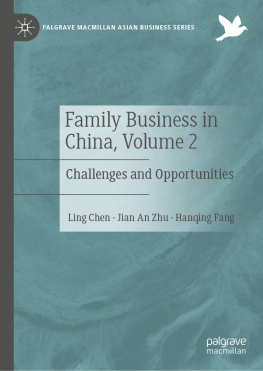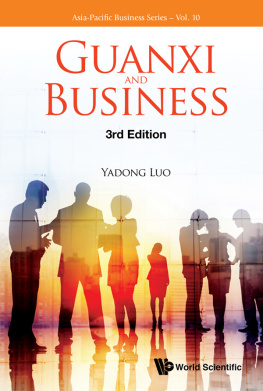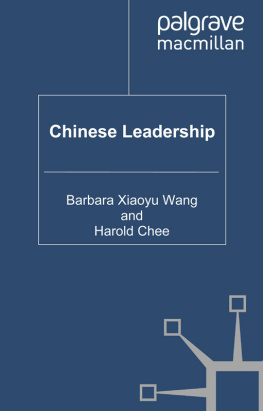In most social systems, there are four categories of participants: the peripherals who dangle by weak affiliations at the edge of a social system; the cliquers who confine themselves to a satellite group in the social system; the brokers who connect across satellite groups seeking access to the inner circle; and what might be termed the guanxians, the people who live in the inner circle. The four categories each have their social logic, variably emphasizing access at the periphery, to obligation, and status within the inner circle. Elite inner circles are familiar in the West, but they are a way of life in China such that the country has become a laboratory for studying how guanxi networks operate. This book is a productive introduction to the study of quanxi networks in Greater China with a focus on entrepreneurship, including works by many of the leading scholars on the subject.
Ronald Burt, University of Chicago
The Greater China mainland, Hong Kong and Taiwan is a fertile ground for the study of social capital because of the cultural and institutional regime rich in social relations and guanxi, and in economic exchanges. Yet so far we have not seen a comprehensive treatment of this social-economic terrain. Jenn-hwan Wang and Ray-May Hsung put together a wonderful collection of papers on the intraand inter-regional social capital and economic activities. It will be a definitive and must-read volume for those interested in social capital and economic sociology.
Nan Lin, Duke University
Not so long ago, a number of scholars were ready to record the decline of guanxi in business and in other spheres of Chinese life. Were they ever wrong! Here is a much needed book that looks at guanxi and guanxi webs in Greater China. With chapters from some of the best sociologists now working on Chinese society, this book allows us to compare these essential building blocks of Chinese society in three different locations Mainland China, Taiwan, and Hong Kong and thereby to see the interplay between historical context and contemporary social structure. A terrific book for all those interested in Chinese society.
Gary Hamilton, University of Washington, Seattle
Rethinking Social Capital and Entrepreneurship in Greater China
Family networks and wider personal social relationships guanxi () have long been held to be a significant factor for the success of many Chinese family businesses, and guanxi is often seen as a special characteristic that shapes the nature of all business in China. This book re-examines this proposition critically, bringing together the very latest research and comparing the situation in different parts of Greater China mainland China, Taiwan, and Hong Kong. It considers entrepreneurship, venture capital, intergenerational succession, disputes, family businesses in different sectors of the economy. Among the books many interesting conclusions is the observation that guanxi capitalism has evolved in different ways in the different parts of Greater China, with the particular institutional setting having a major impact.
Jenn-Hwan Wang is a Professor in the Graduate Institute of Development Studies at National Chengchi University, Taiwan.
Ray-May Hsung is a Professor of Sociology at National Chengchi University, Taiwan.
Routledge Culture, Society, Business in East Asia Series
Editorial Board:
Heung Wah Wong (Executive Editor), The University of Hong Kong, Hong Kong, China
Chris Hutton, The University of Hong Kong, Hong Kong, China
Wayne Cristaudo, The University of Hong Kong, Hong Kong, China
Harumi Befu (Emeritus Professor), Stanford University, USA
Shao-dang Yan, Peking University, China
Andrew Stewart MacNaughton, Reitaku University, Japan
William Kelly, Independent Researcher
Keiji Maegawa, Tsukuba University, Japan
Kiyomitsu Yui, Kobe University, Japan
How and what are we to examine if we wish to understand the commonalities across East Asia without falling into the powerful fictions or homogeneities that dress its many constituencies? By the same measure, can East Asian homogeneities make sense in any way outside the biases of an imagined East-West dichotomy?
For anthropologists familiar with the societies of East Asia, there is a rich diversity of work that can potentially be applied to address these questions within a comparative tradition grounded in the region as opposed the singularizing outward encounter. This requires us to broaden our scope of investigation to include all aspects of intra-regional life, trade, ideology, culture, and governance, while at the same time dedicating ourselves to a complete and holistic understanding of the exchange of identities that describe each community under investigation. An original and wide-ranging analysis will be the result, one that draws on the methods and theory of anthropology as it deepens our understanding of the interconnections, dependencies, and discordances within and among East Asia.
The book series includes three broad strands within and between which to critically examine the various insides and outsides of the region. The first is about the globalization of Japanese popular culture in East Asia, especially in Greater China. The second strand presents comparative studies of major social institutions in Japan and China, such as family, community, and other major concepts in Japanese and Chinese societies. The final strand puts forward cross-cultural studies of business in East Asia.
1Youth and Internet Addiction in China
Trent Bax
2Japanese Adult Videos in Taiwan
Heung-Wah Wong and Hoi-yan Yau
3Chinese Masculinities in a Globalizing World
Kam Louie
4Rethinking Social Capital and Entrepreneurship in Greater China
Is guanxi still important?
Edited by Jenn-Hwan Wang and Ray-May Hsung
First published 2016
by Routledge
2 Park Square, Milton Park, Abingdon, Oxon OX14 4RN
and by Routledge
711 Third Avenue, New York, NY 10017
Routledge is an imprint of the Taylor & Francis Group, an informa business
2016 Jenn-Hwan Wang and Ray-May Hsung
The right of Jenn-Hwan Wang and Ray-May Hsung to be identified as the authors of the editorial material, and of the authors for their individual chapters, has been asserted in accordance with sections 77 and 78 of the Copyright, Designs and Patents Act 1988.
All rights reserved. No part of this book may be reprinted or reproduced or utilised in any form or by any electronic, mechanical, or other means, now known or hereafter invented, including photocopying and recording, or in any information storage or retrieval system, without permission in writing from the publishers.
Trademark notice: Product or corporate names may be trademarks or registered trademarks, and are used only for identification and explanation without intent to infringe.
British Library Cataloguing in Publication Data
A catalogue record for this book is available from the British Library


